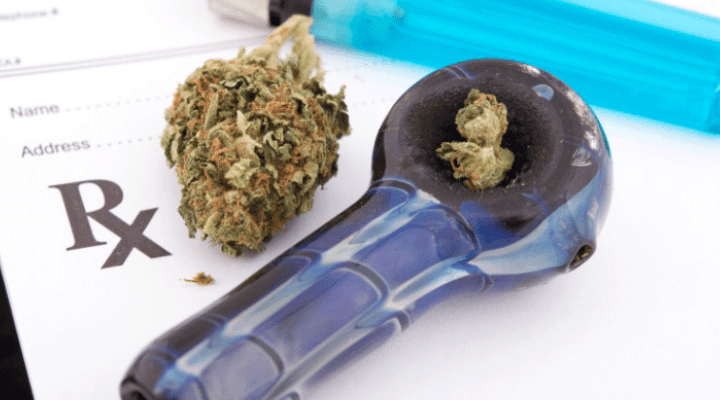Scientists debate marijuana’s potential medical benefits—it might help sufferers of high blood pressure, chronic pain, fibromyalgia, irritable bowel syndrome, and Crohn’s disease, according to certain studies. And in the past year, the American Legion and other veterans’ groups have called for giving marijuana to war veterans, based on evidence that it can relieve post-traumatic stress disorder more effectively and safely than many legal psychiatric drugs. Whatever its therapeutic benefits may be, however, one thing is for certain: It will not benefit those of us who hold or seek a security clearance.
Security-clearance adjudicators refuse clearances to persons who use illicit drugs, including marijuana. They make no exception for “medicinal” marijuana users. Medicinal marijuana is still marijuana, and using it medicinally is still illicit use—and accordingly, is still grounds for denying or revoking a clearance.
State marijuana law vs. Federal law
At least 1.2 million Americans have obtained permits to consume medical marijuana as of March 2016, according to a report published on the ProCon.org. They can get these permits in 29 states and the District of Columbia, all of which have made medical marijuana legal in their borders.
Another 17 states allow medical use of cannabis-containing products, as long as those products have less than 3% THC (the chemical in marijuana that makes users feel “high”) by volume. CBD oil is an example—more on that below.
But none of these state laws matter if you want to work in a clearance-level job. That’s because federal law still deems marijuana illegal. To be specific, federal regulators label marijuana a “Schedule 1 drug”—the official classification the government gives to drugs that it deems to have “no currently accepted medical use” and “high potential for abuse” and therefore prohibits—under the Controlled Substances Act. The Schedule 1 list also includes heroin, Ecstasy, cocaine, and many other substances that no law-abiding doctor in this country will ever prescribe.
The Food and Drug Administration has accordingly not endorsed marijuana for any medical purpose whatsoever. The closest it has come is Marinol, a drug that treats extreme weight loss in HIV patients. Marinol is structurally like THC, but it is synthetic. FDA protocols still explicitly state that it is illegal to “sell or transport marijuana or any product containing marijuana.” This includes buying or selling supplements, medicines, or foods that contain natural THC or cannabis.
The FDA does leave the door open for more research on marijuana’s medicinal potential. In a February 2017 statement, the FDA said that it supports “researchers who conduct adequate and well-controlled clinical trials which may lead to the development of safe and effective marijuana products to treat medical conditions.” But even research trials involving marijuana cannot legally take place without first getting approval from the DEA, the same statement said.
Congress relaxed federal enforcement of laws banning medical marijuana in 2014, when the Rohrabacher-Blumenauer Amendment cleared both houses. This amendment forbade the Justice Department from using any funds to go after medical marijuana in states that had legalized it. This amendment got a renewal in February of this year as part of a stopgap spending bill, ensuring that medical-marijuana dispensaries in marijuana-friendly states will continue operating without fear of federal raids.
The amendment says nothing, though, about freedom to use medical marijuana in states where it isn’t legal. Nor does it tell any federal agencies to change their rules and allow their employees to partake. Federal employers who have revoked or denied security clearances over marijuana use, medical or not, can continue to do so. And until Washington passes a new law permitting medical marijuana across the country, they will.
It doesn’t matter what health benefit you or your doctor think medical marijuana might give you. Using the herb will still be toxic for your chances of getting or keeping a clearance.
CBD Oil
THC is one of two chemical compounds found in the marijuana plant. Cannabidiol is the other. Unlike THC, cannabidiol doesn’t give consumers any chemical high. And it does appear to have some health benefits: CBD oil, made with extracted cannabidiol, is available for sale as a topical solution in some parts of the country. Its users claim to get relief from migraine headaches, insomnia, anxiety, many types of chronic pain, and epilepsy, including a rare and very hard-to-treat form of childhood epilepsy called Dravet syndrome.
Of course, alternative treatments exist for any of the above. And if a security clearance is a priority for you, you’d be better off seeking them. In a December 2015 statement, the DEA said that CBD from any source is, legally speaking, a “derivative” or “component” of marijuana, and that means it is still a Schedule 1 substance—and still illegal.
science evolves, but security policy hasn’t (yet)
Science evolves, and federal regulations evolve with them. It’s entirely possible that federal lawmakers might drop prohibitions on medical marijuana sometime down the road. If scientists find more definitive proof that marijuana and CBD products are medically useful and safe, new laws that allow doctors to prescribe them in the United States may take effect.
But until then, security-clearance holders or seekers must follow the existing law. And the existing law is clear and unambiguous: No marijuana, not even for medicinal reasons.



